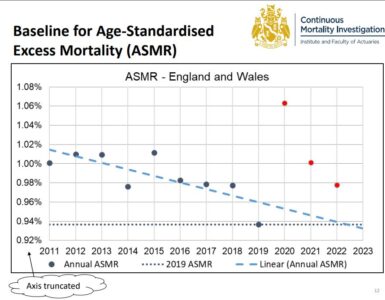New variant
This week a new variant has been identified in ten genome sequences from Southern Africa (mainly Botswana and South Africa).
It first came to our attention in a Twitter thread by virologist Tom Peacock:
This thread and the discussion on the cov-lineages.org website’s GitHub highlight a large number of spike protein mutations that raises concerns about potential immune escape. The variant has now been included on the website.
Increase in cases in South Africa
On 23 November 2021 South Africa reported over 18,500 cases.
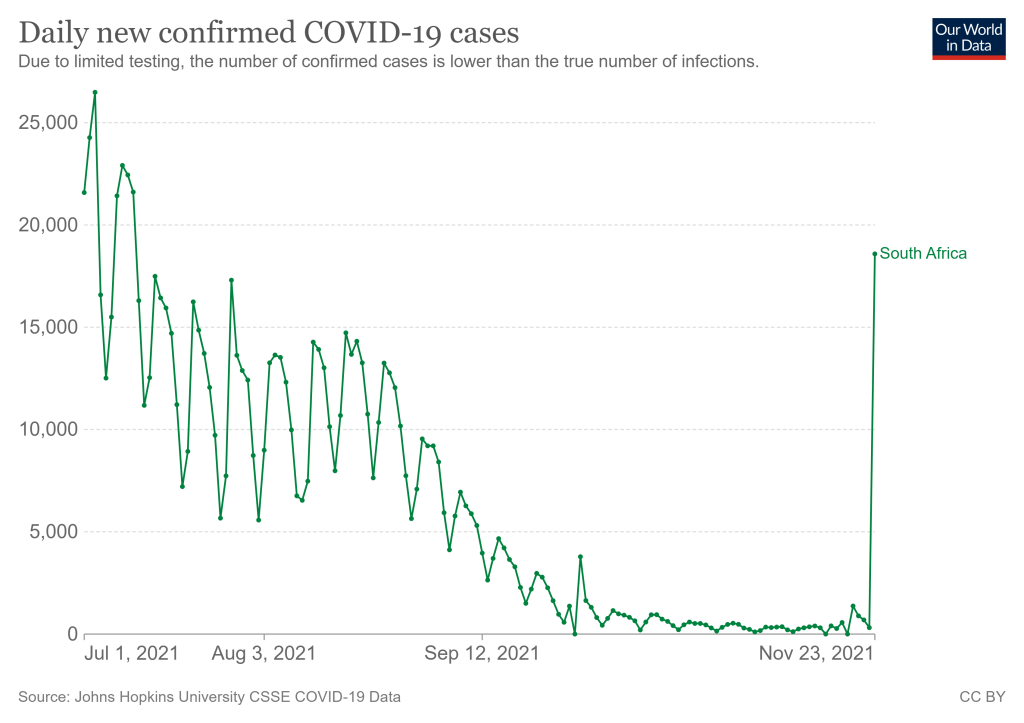
It looks like South Africa had a recent massive jump in cases, but there is important context. The South African National Institute for Communicable Diseases (NICD) states:
As of today, retrospective antigen tests are being loaded to fill in gaps that existed while antigen test providers put systems in place to report to the National Department of Health (NDoH). The NICD and NHLS optimised the systems to accurately reflect these reports. Please refer to the media statement that was released by the NDoH on 23 November 2021.
NICD, Latest Confirmed Cases of COVID-19 in South Africa (23 November 2021)
The increase in cumulative cases in today’s report is attributed to the retrospective addition of 18 586 antigen tests, that include the reporting of 868 positive cases recorded in the past 24 hours. The incorporation of antigen tests follows ongoing improvements to report as accurately as possible from all provinces and all testing facilities throughout South Africa. 19 244 585 tests have been conducted in both public and private sectors as per the table below.
In other words the large spike in cases results from a processing issue – the inclusion of cases not previously reported, that can now be included due to system improvements. It would not be correct to link the spike to the new variant.
By my estimates the true picture of cases in South Africa does show an increasing trend, but far far below the numbers above. Below I plot estimated 7-day moving average of cases by date the specimen is received at the laboratory. Cases have not grown anything like as rapidly as the chart above suggests, though they do show a concerning upward trend.
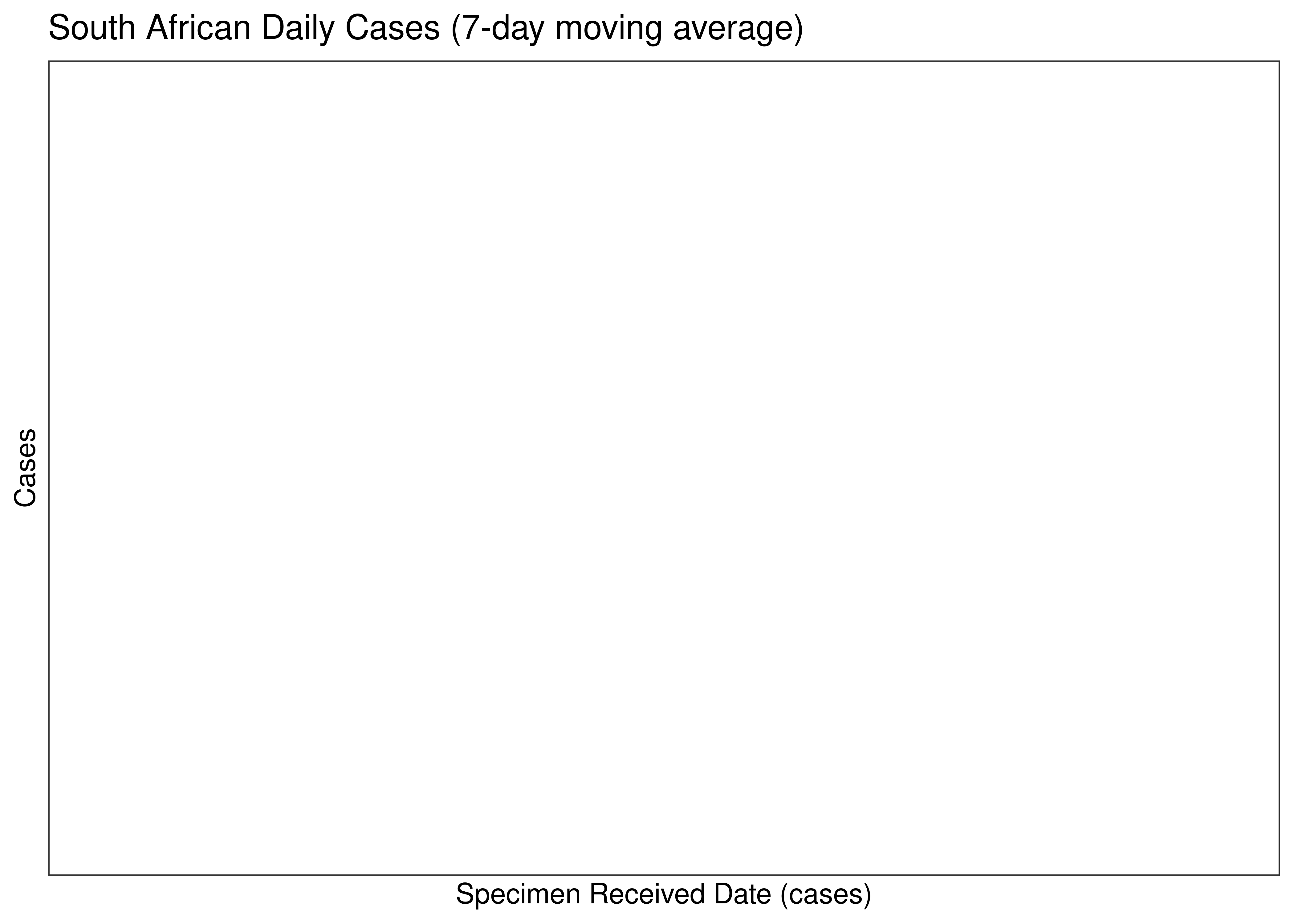
Update
In this video update by the Department of Health of South Africa’ information about the variant B.1.1.529 is shared. In the presentation Dr. Tulio de Oliveira (Director of CERI: Centre for Epidemic Response & innovation, South Africa) and Dr. Richard Lessels discuss this variant, a summary of which is presented in this thread
In the video, Oliveira and Lessels expand on the timeline of discovery of this variant. It was discovered on Tuesday, 23 November 2021 when it showed different results on a qPCR test.
The mutation profile of this variant is then presented in the update, details below:
- It has more than 30 mutations on the spike protein.
- Mutation profile is very different from other variants of concern or variant of interest.
- Some of the mutations are characterised to be affecting transmissibility and immune evasion.
- The significance of many of the mutations remains uncertain.
They go on to show that B.1.1.529 is already becoming the dominant variant with it being a significant proportion of recently sequenced genomes (in blue) apparently outcompeting Delta (in red). C.1.2 is also a variant that posed some concern.
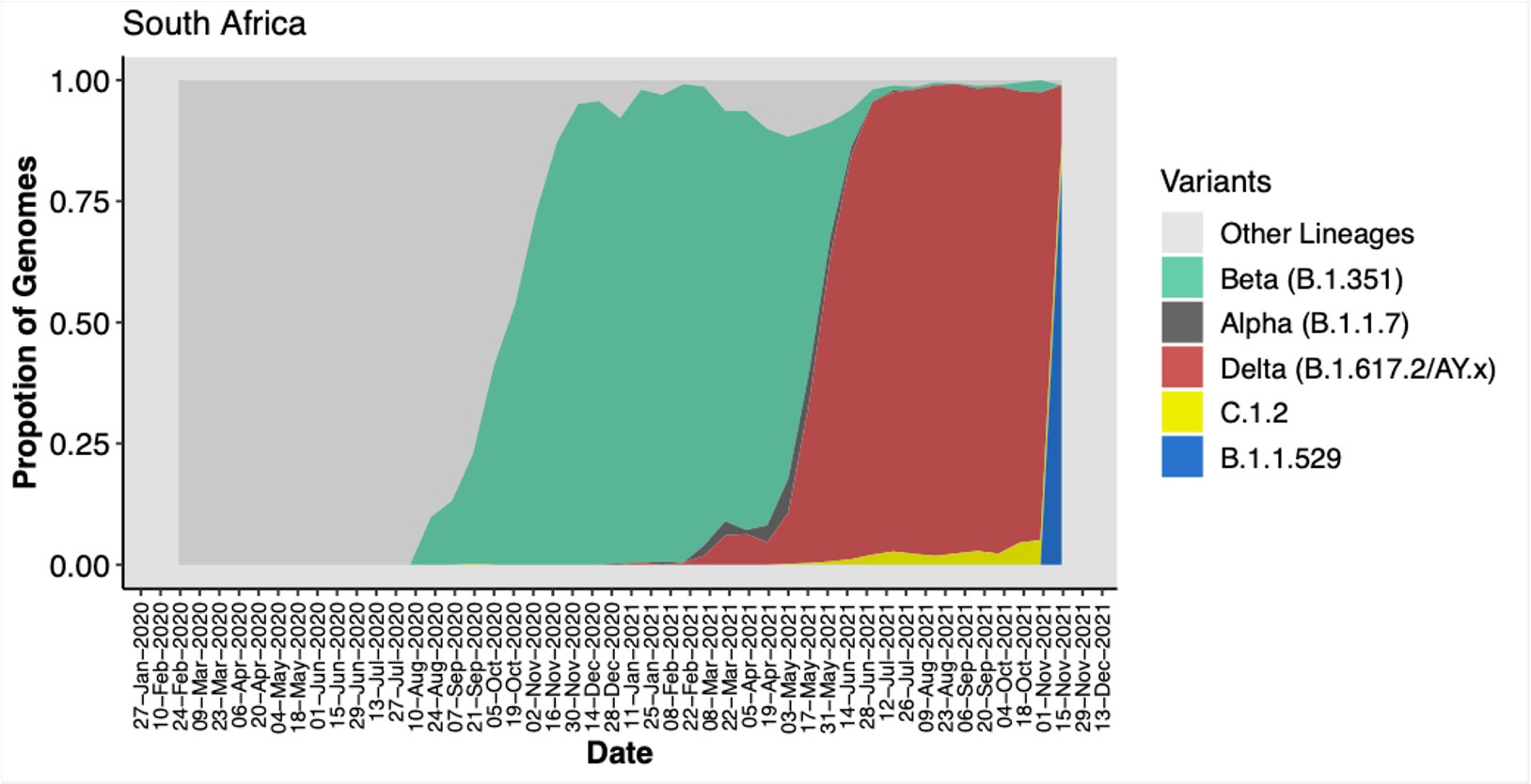
It should be noted that during the last week all sampling had been focussed on Gauteng, (given the observed increase in cases), and hence almost all the recent genomes are from Gauteng.
Cases continue to rise across Gauteng province as can be seen the chart by district below:
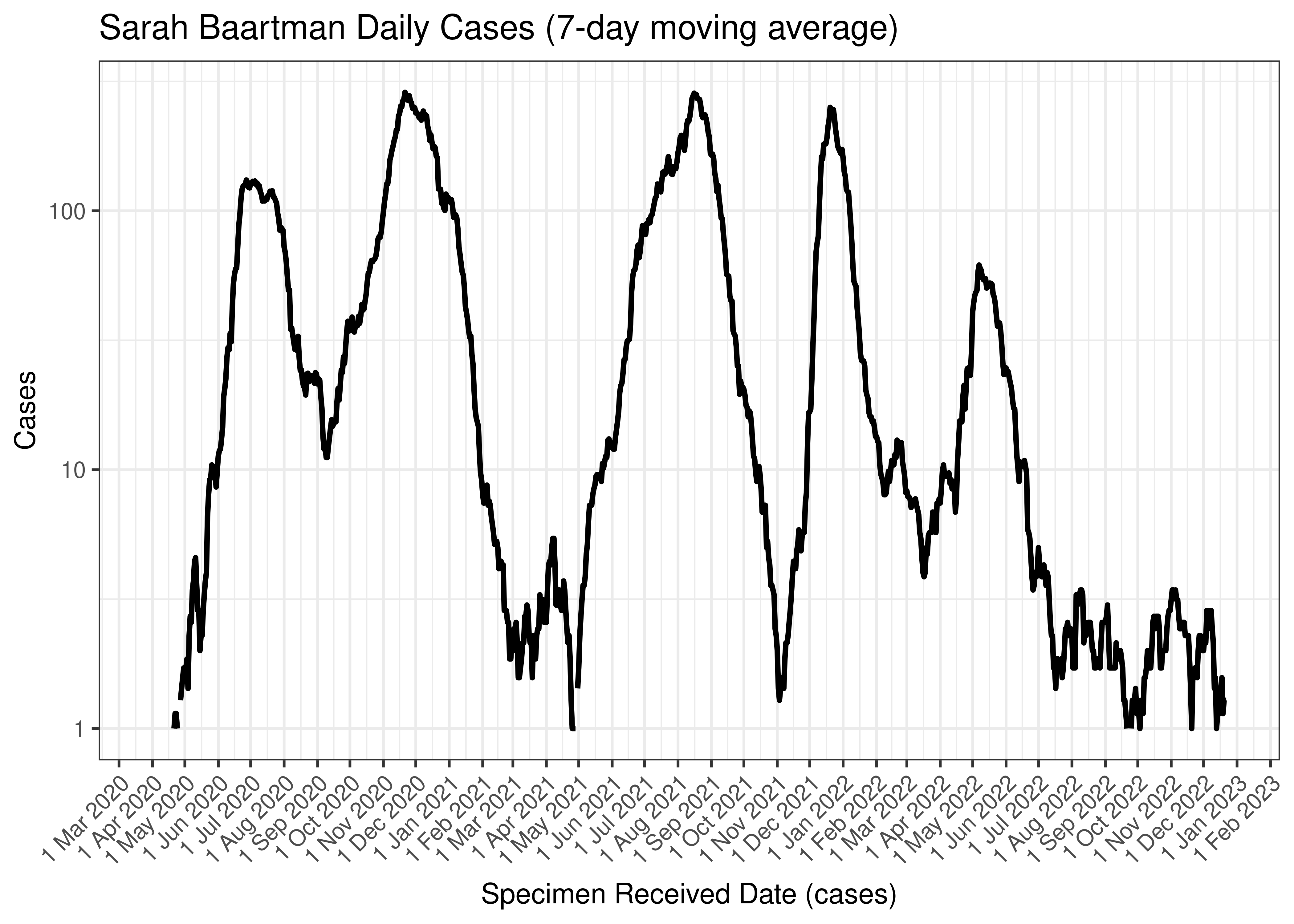
R in Gauteng is similarly estimated to have increased to 2 (or higher):

This is further affirmed by test positivity rates observed in Gauteng.
Due to the virus also resulting in S gene target failure on particular PCR assays, (similar to Alpha), it is detectable via this particular PCR assay and based on this, they establish that this variant is already circulating in many provinces in South Africa and may be an estimated 90% of cases in Gauteng. This creates a link between the rise in cases in Gauteng with this variant.
The researchers also highlight that much is unknown and continue to encourage those who have not vaccinated yet to get vaccinated. Oliveira and Lessels a focus of research on transmissibility, impact on protection of vaccines, risk of reinfection, disease severity and diagnostics.
On Friday, 26 November 2021, the variant was classified as a variant of concern (VOC) by the World Health Organisation and was named Omicron. To be classified a variant of concern a variant has to show have increased transmissibility (or change in epidemiology), increased virulence (or changed clinical presentation) or decrease in effectiveness of public health measures, diagnostics, vaccines or therapeutics. Other VOCs include Alpha, Beta. Gamma and Delta.
This news is hugely concerning and seems to clearly indicate that the surge in cases observed in Gauteng is associated with this variant. This raises serious questions about the expected 4th wave of COVID-19 which was generally expected to be milder than the wave preceding it.




